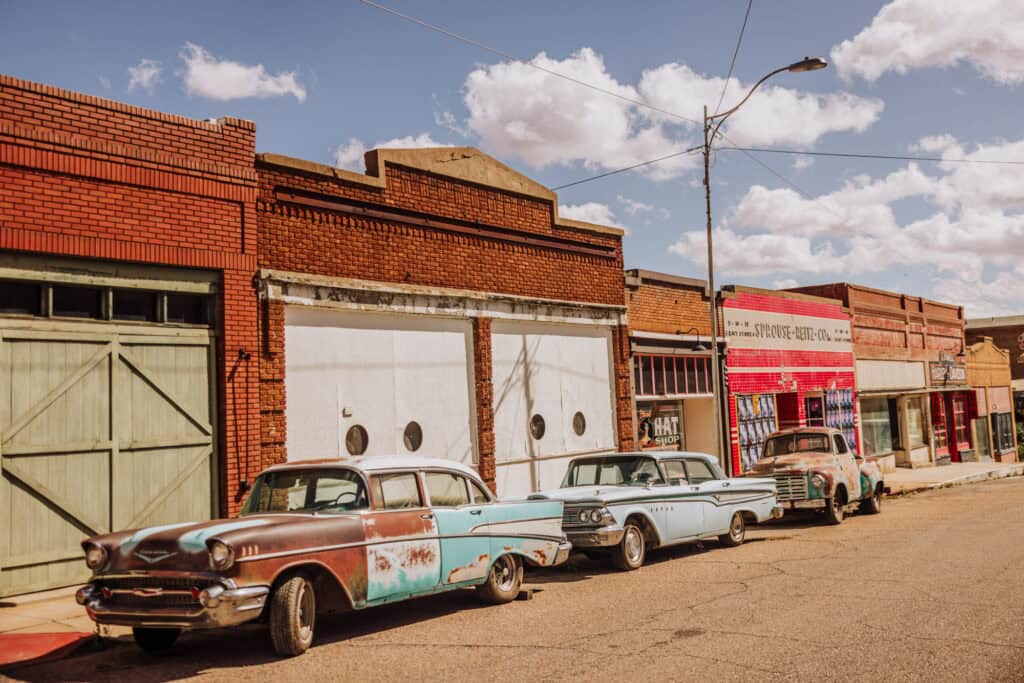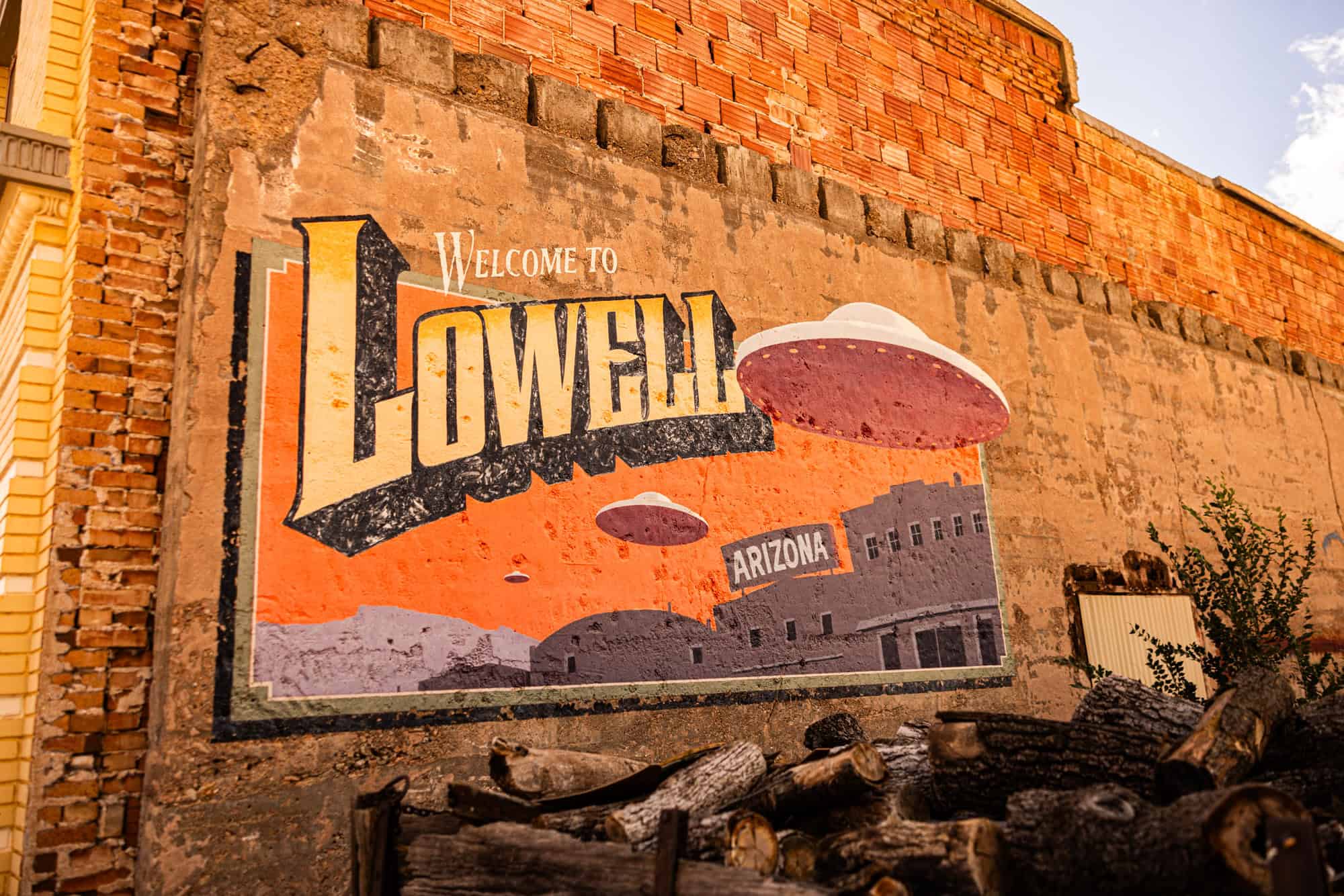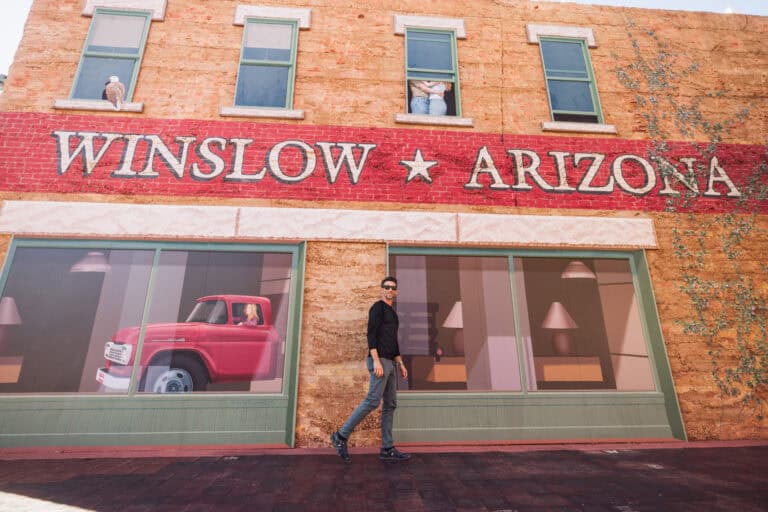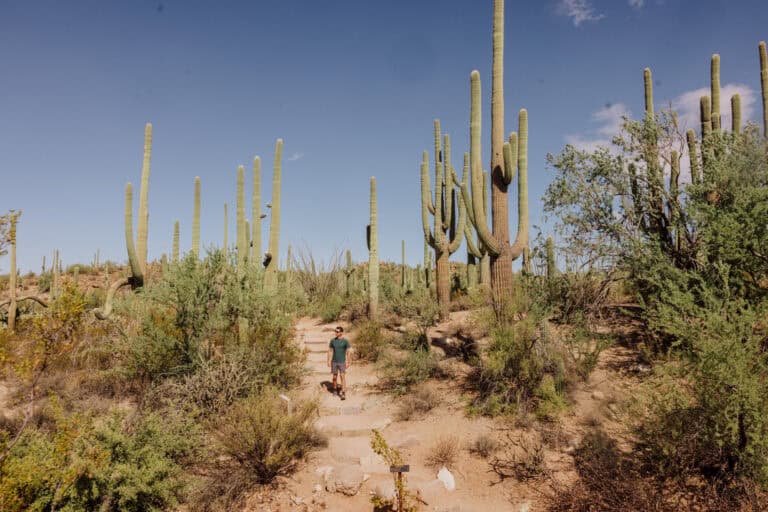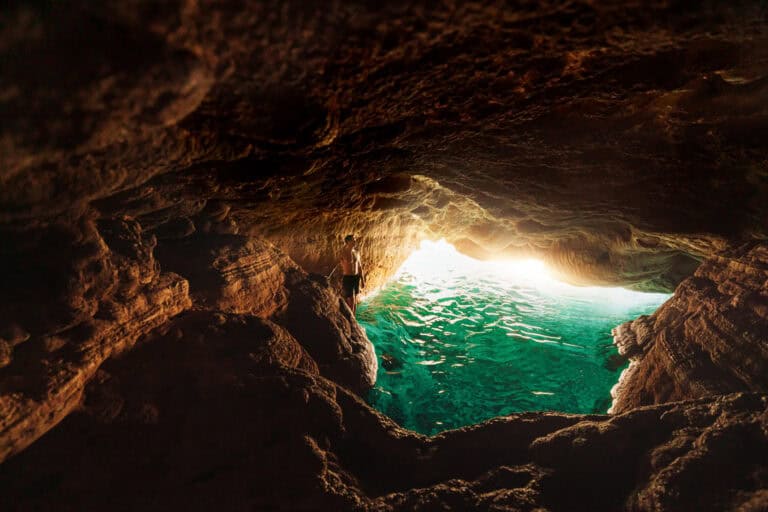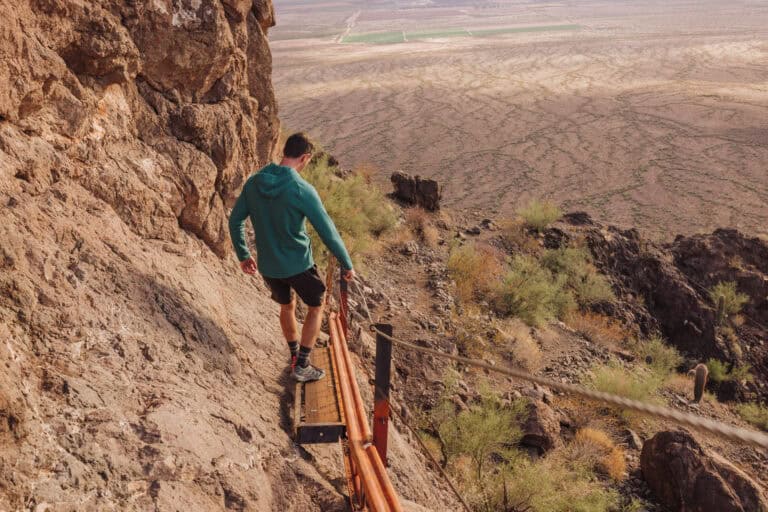Exploring Lowell, Arizona: A Ghost Town Turned Retro Museum

Nestled on the outskirts of Bisbee, Arizona, Lowell is a ghost town turned living museum, full of mid-20th-century nostalgia and charm.
The small town was abandoned after the demise of the local mining industry, but today it’s a fun stop to check out the time capsule of American life in the 1940s and ’50s.
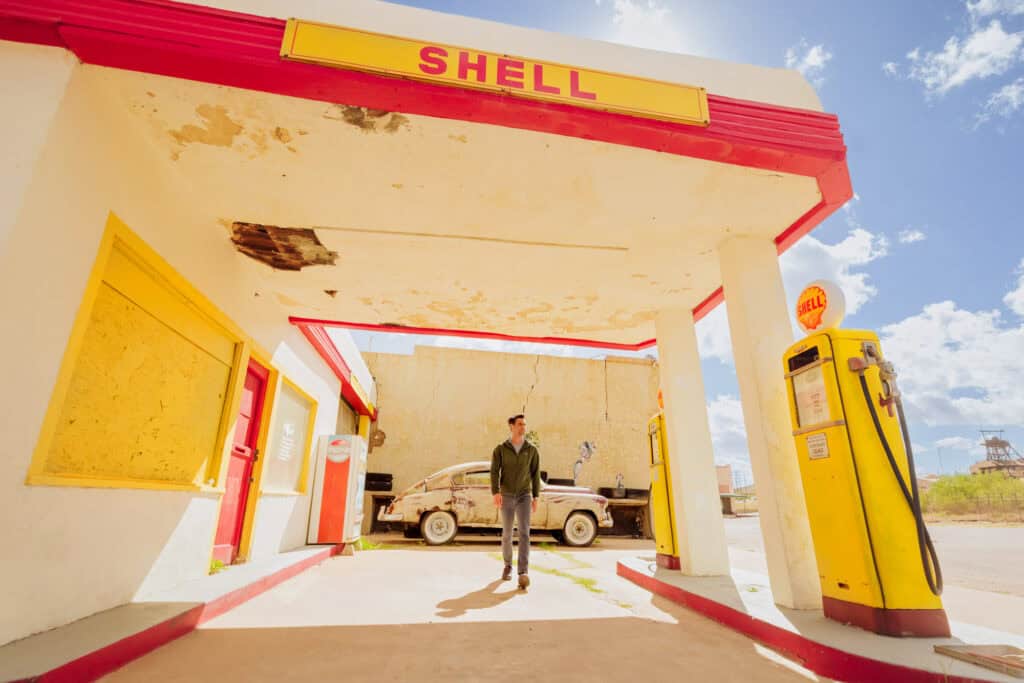
What You’ll Find in Lowell, Arizona
When you visit Lowell today, you’re stepping into a living postcard.
Erie Street
The heart of Lowell, Erie Street, is lined with restored facades of businesses like an old diner, gas station, and hardware store. Vintage cars are parked along the curb, adding to the illusion of stepping back in time.
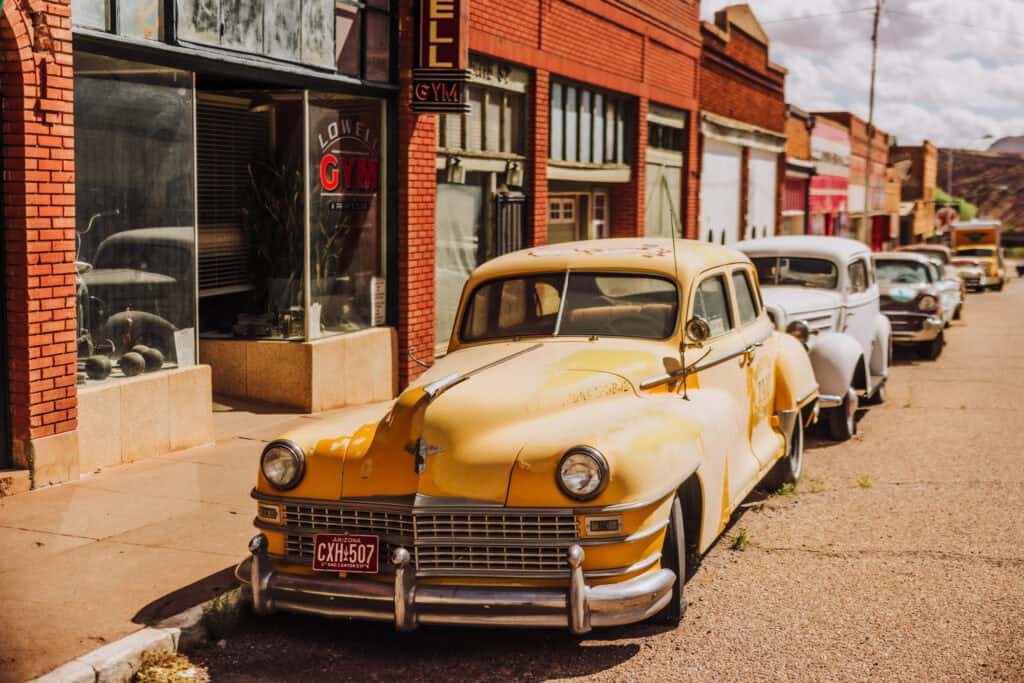
50s Photography Opportunities
Every corner of Lowell is photogenic, making it a favorite spot for photographers and Instagrammers.
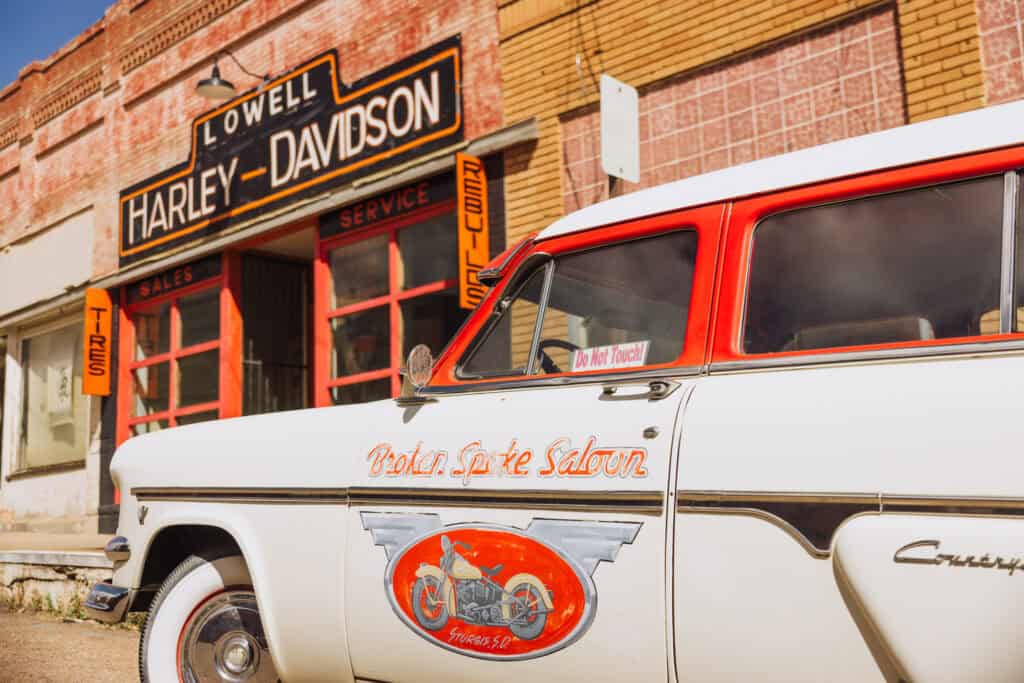
Bisbee Breakfast Club
While options are limited, Lowell features quirky cafés and small businesses where you can grab a bite or shop for souvenirs.
The Bisbee Breakfast Club is a classic diner, and a favorite among locals and visitors.
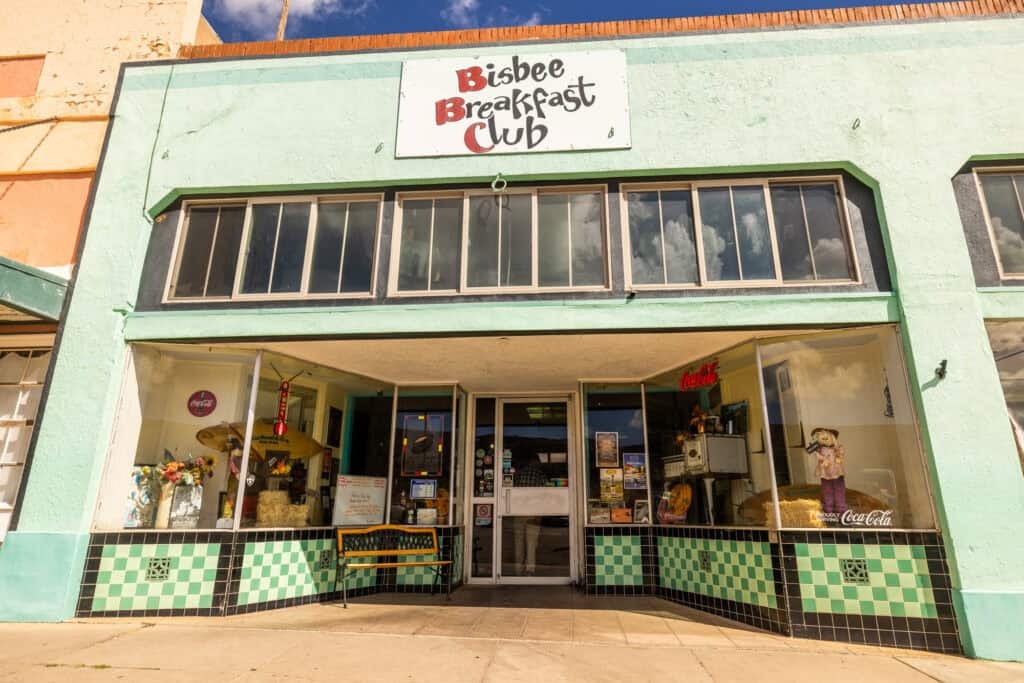
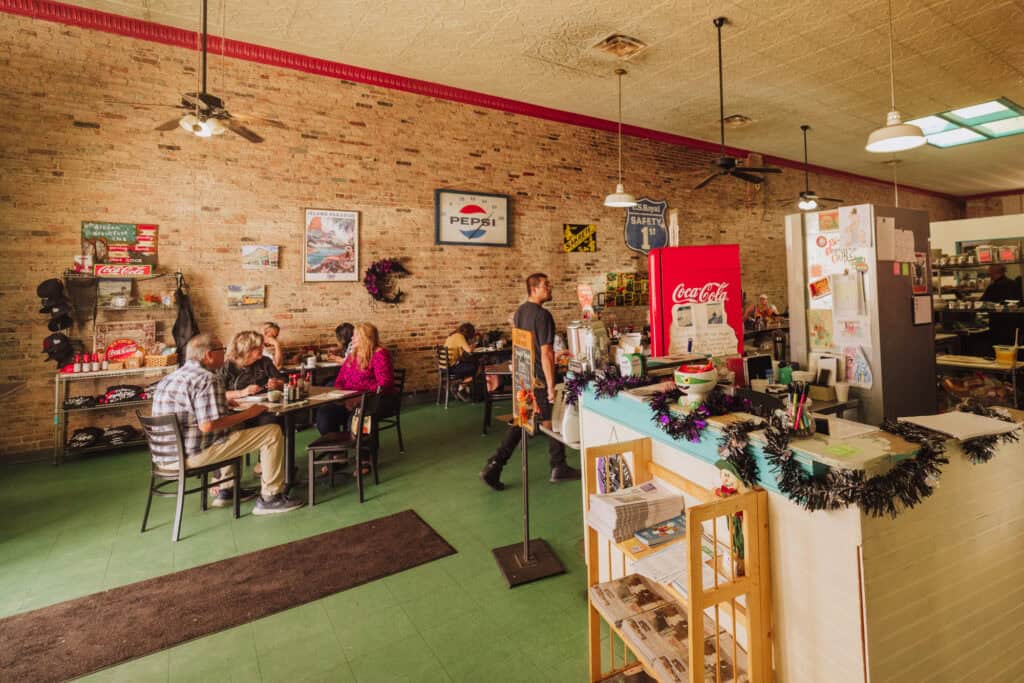
The Lavender Pit
You’ll have an overview of the Lavender Pit, once one of the largest open-pit copper mines in the world.
Where to Stay Near Lowell, AZ
Just up the highway from Lowell is Bisbee, Arizona, which is full of charming hotels and rental options. You can plug in your dates to this interactive map to see rates from Hotels.com, Expedia, VRBO, and others all in the same spot:
Vintage & Classic Photography on Erie Street
Classic vehicles parked along Erie Street evoke the mid-20th century, with their weathered exteriors, gleaming chrome, and timeless designs.
Shell Gas Station
The Shell Gas Station in Lowell is an original structure, which was restored with the classic yellow and red Shell branding and vintage gas pumps. Much of the restoration work took place after fundraising in 2021.
While it once served local drivers when Lowell was a bustling mining town, today it stands as a monument to the automotive culture from nearly a century ago.
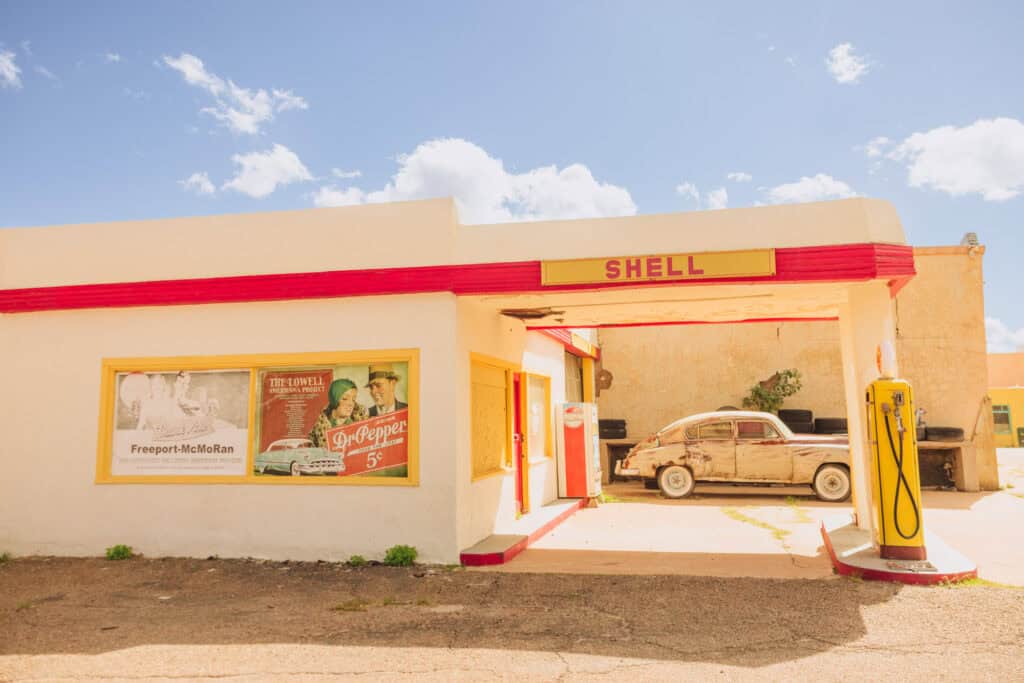
Greyhound Bus
A vintage Greyhound bus is parked on Erie Street as a symbol of mid-20th-century travel. While it’s not originally from Lowell, it was brought to the area as part of the Lowell Americana Project. In the 1950s, cross-country travel by bus was a staple of American life, so it fits in perfectly with the retro surroundings.
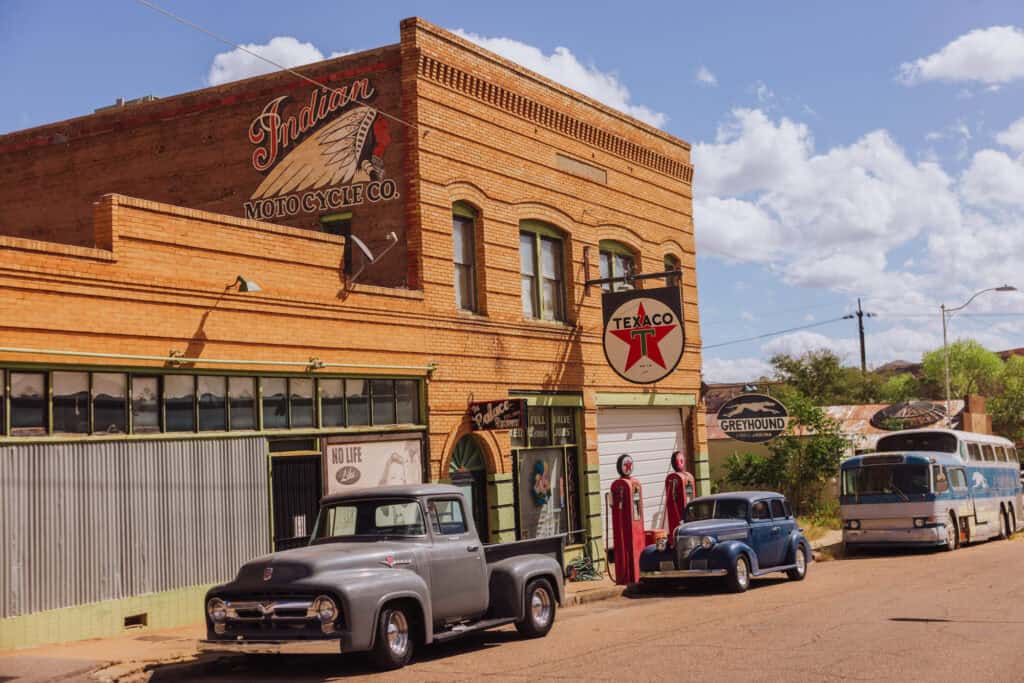
A Brief History of Lowell, Arizona
Lowell developed to house miners and their families, and thrived for decades until the industry collapsed.
Why Lowell Was Developed
- Early 1900s Mining Boom: In the late 19th and early 20th centuries, Bisbee became one of the world’s largest producers of copper, attracting miners and settlers to the area. Lowell was established during this time as a neighboring town to house miners and their families, as Bisbee itself was becoming overcrowded.
- Strategic Location: Lowell’s location was ideal, sitting near the mining operations and the Lavender Pit, one of the largest open-pit copper mines in the world.
- Peak Growth (1920s-1940s): During its heyday, Lowell flourished alongside Bisbee, with Erie Street serving as its bustling main thoroughfare.
Why Lowell Was Abandoned
- Decline in Copper Mining: By the mid-20th century, demand for copper fluctuated, and mining operations became less profitable. Many mines in the Bisbee area, including the Lavender Pit, began shutting down.
- Expansion of the Lavender Pit (1950s-1960s): As the Lavender Pit mine expanded, large portions of Lowell were literally consumed by the mining operation. Homes and buildings were demolished, leaving Erie Street and a small portion of the town intact.
- Population Decline: With the economic base eroded and much of the town physically gone, residents moved away in search of better opportunities. By the 1970s, Lowell was effectively a ghost town, with only a few remaining structures and businesses.
The Lavender Pit
The hue in the exposed rock is somewhat purple-ish, so I figured that’s how the Lavender Pit in Lowell got its name.
In reality, it was named after Harrison Lavender, a mining engineer and executive who helped bring open-pit mining to Bisbee’s copper industry.
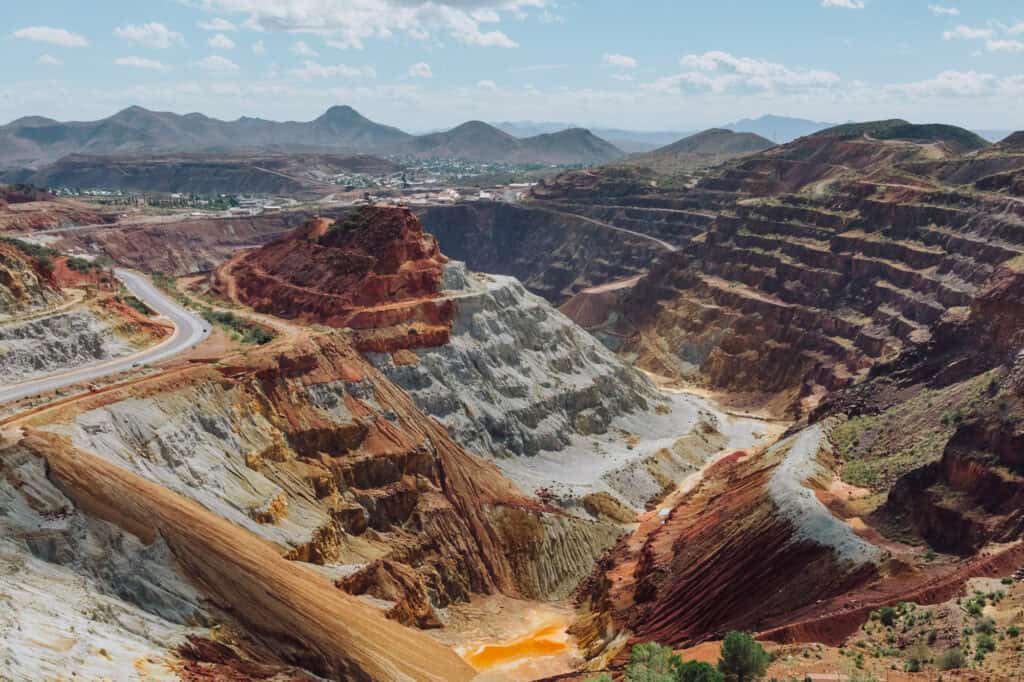
The Lavender Pit opened in 1950, and expanded over the years on the edge of Lowell. Its expansion forced parts of the town to relocate.
It grew to 300 acres in size, with a depth of 900 feet. The mine is estimated to have produced 86 million tons of ore, full of copper and other metals.
The mine faced environmental concerns and difficulties extracting ore profitably as copper prices fluctuated. These challenges eventually led to its closure. Mining operations ended in 1974, when the cost to extract the ore outpaced the profits.
The Lowell American Project & Preservation
Preservationists have worked to maintain Lowell’s remaining landmarks along Erie Street, and restore more of its mid-century appearance.
The Lowell Americana Project was established to transform Erie Street into a living museum.
Over time, the project has brought more vintage signs and cars to the street and storefronts, along with other artifacts from the mid-1900s.
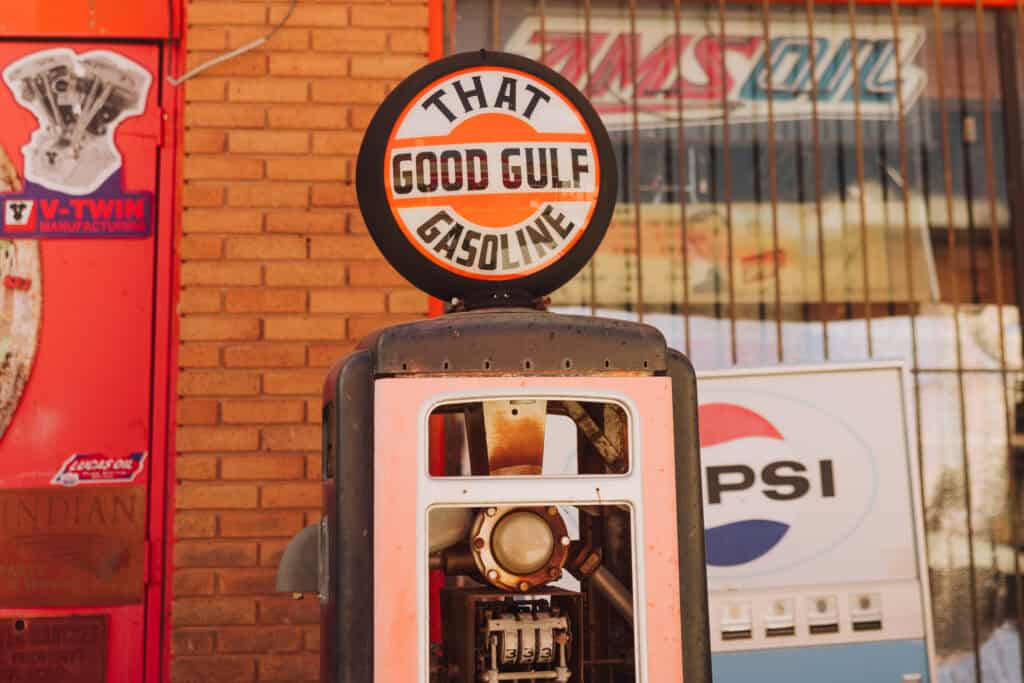
The Lowell Americana Project helped revive interest in Lowell through car shows and other retro-themed festivals.
Fundraising efforts continue for projects, through GoFundMe.
Wrap: Is Lowell, AZ, Worth a Visit?
Lowell is a must-see for history buffs, photographers, and anyone with a love of retro Americana. Combine your visit with a trip to Bisbee to explore its mining history and vibrant arts scene.
While staying in Bisbee, I’d drive down to Lowell for breakfast and then spend an hour walking the historic street, admiring the restoration work, and taking photos.
Lowell might be small, but its charm and history loom large, making it a hidden gem in Arizona’s tapestry of historic towns.
More to do Nearby
If you’re driving around Southern Arizona, consider making a stop at some of these iconic destinations:
- Saguaro National Park
- San Xavier Mission
- Picacho Peak State Park
- Kartchner Caverns State Park
- Chiricahua National Monument
- The wineries in Sonoita & Elgin, including Dos Cabezas, Los Milics, and Rune Wineworks
- Bisbee
- Tombstone
